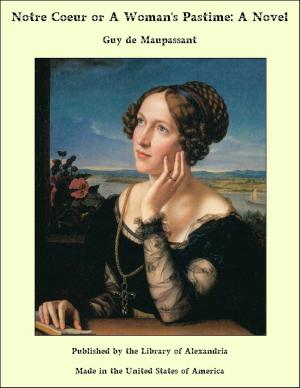| Author: | Roman Doubleday | ISBN: | 9781465619679 |
| Publisher: | Library of Alexandria | Publication: | March 8, 2015 |
| Imprint: | Language: | English |
| Author: | Roman Doubleday |
| ISBN: | 9781465619679 |
| Publisher: | Library of Alexandria |
| Publication: | March 8, 2015 |
| Imprint: | |
| Language: | English |
There was a man in our town who had always interested me to an unusual degree, though my personal acquaintance with him was of the slightest. He was an architect, Kenneth Clyde by name, and he had done some of the best public buildings in the State. He had a wide circle of friends and acquaintances, and was related to half a dozen of the "Old families" of the town. (I am comparatively new myself. But I soon saw that Clyde belonged to the inner circle Of Saintsbury.) And yet, with all his professional success and his social privileges, there was something about the man that expressed an excessive humility. It was not diffidence or shyness,--he had all the self-possession that goes with good breeding. But he held himself back from claiming public credit or accepting any public place, though I knew that more than once it had been pressed upon him in a way that made it difficult for him to evade it. He persistently kept himself in the background, until his desire to remain inconspicuous almost became conspicuous in turn. He was the man, for instance, who did all the work connected with the organization of our Boat Club, but he refused to accept any Office. He was always ready to lend a hand with any public enterprise that needed pushing, but his name never figured on the committees that appeared in the newspapers. And yet, if physiognomy counts for anything, he was not born to take a back seat. He was approaching forty at this time, and in spite of his consistent modesty, he was one of the best known men in Saintsbury. As I say, he had always interested me as a man out of the ordinary, and when he walked into my law office a few days before that telephone call from Mrs. Whyte, I was uncommonly pleased at the idea that he should have come to me for legal advice when he might have had anything he wanted from the older lawyers in town whom he had known all his life. I guessed at a glance that it was professional advice he wanted, from the curiously tense look that underlay his surface coolness.
There was a man in our town who had always interested me to an unusual degree, though my personal acquaintance with him was of the slightest. He was an architect, Kenneth Clyde by name, and he had done some of the best public buildings in the State. He had a wide circle of friends and acquaintances, and was related to half a dozen of the "Old families" of the town. (I am comparatively new myself. But I soon saw that Clyde belonged to the inner circle Of Saintsbury.) And yet, with all his professional success and his social privileges, there was something about the man that expressed an excessive humility. It was not diffidence or shyness,--he had all the self-possession that goes with good breeding. But he held himself back from claiming public credit or accepting any public place, though I knew that more than once it had been pressed upon him in a way that made it difficult for him to evade it. He persistently kept himself in the background, until his desire to remain inconspicuous almost became conspicuous in turn. He was the man, for instance, who did all the work connected with the organization of our Boat Club, but he refused to accept any Office. He was always ready to lend a hand with any public enterprise that needed pushing, but his name never figured on the committees that appeared in the newspapers. And yet, if physiognomy counts for anything, he was not born to take a back seat. He was approaching forty at this time, and in spite of his consistent modesty, he was one of the best known men in Saintsbury. As I say, he had always interested me as a man out of the ordinary, and when he walked into my law office a few days before that telephone call from Mrs. Whyte, I was uncommonly pleased at the idea that he should have come to me for legal advice when he might have had anything he wanted from the older lawyers in town whom he had known all his life. I guessed at a glance that it was professional advice he wanted, from the curiously tense look that underlay his surface coolness.















